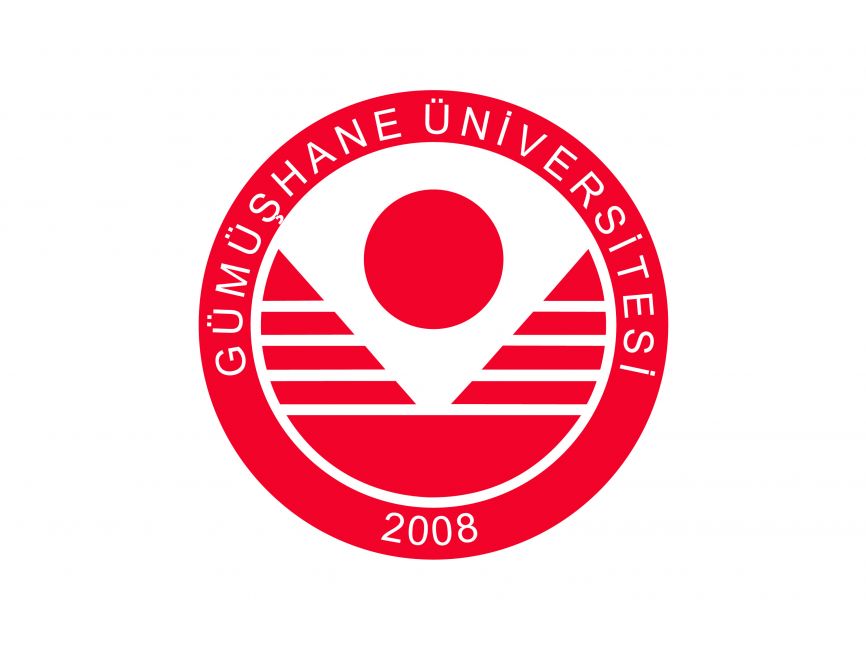Civil Aviation Management
Overview
<!-- wp:paragraph --> <p><strong>Program Description</strong><br><strong>Civil Aviation Management Program at Gümüşhane University: Leading the Future of Air Transport</strong></p> <!-- /wp:paragraph --> <!-- wp:paragraph --> <p>The Civil Aviation Management program at Gümüşhane University is designed to prepare students for leadership roles in the rapidly growing field of aviation. This program offers a comprehensive education in air transport systems, airport operations, aviation law, safety, and the economics of the aviation industry. Students will develop the knowledge and skills required to manage airline operations, handle logistics, navigate regulatory environments, and lead within both public and private aviation sectors. Through a combination of theoretical learning and practical training, graduates will be ready to meet the challenges and opportunities in the global aviation industry, ensuring safe and efficient air travel for passengers and goods.</p> <!-- /wp:paragraph --> <!-- wp:paragraph --> <p><strong>Program Mission and Vision</strong><br>The mission of the Civil Aviation Management program at Gümüşhane University is to educate and train highly skilled professionals who can manage the complexities of modern air transport. The program focuses on aviation logistics, operational management, safety protocols, and the business side of the aviation industry. Its vision is to produce competent professionals who will play a leading role in shaping the future of the aviation sector, ensuring operational excellence, safety, and growth within the industry.</p> <!-- /wp:paragraph --> <!-- wp:paragraph --> <p><strong>Curriculum Structure</strong><br>The curriculum for the Civil Aviation Management program is designed to provide students with a strong foundation in the aviation industry, combining theoretical knowledge with practical experience. Students will learn about various aspects of aviation, from airport management to aviation law and safety. Key courses in the curriculum include:</p> <!-- /wp:paragraph --> <!-- wp:paragraph --> <p><strong>Core Civil Aviation Management Courses</strong></p> <!-- /wp:paragraph --> <!-- wp:paragraph --> <p><strong>Introduction to Civil Aviation</strong>: This introductory course provides students with an overview of the aviation industry, including its history, key players, regulatory agencies, and global air transport networks. Students will gain insight into the functions of airlines, airports, and air traffic control systems.</p> <!-- /wp:paragraph --> <!-- wp:paragraph --> <p><strong>Aviation Safety and Security</strong>: This course covers the critical aspects of safety and security within the aviation industry. Topics include risk management, aviation security regulations, safety protocols, and emergency procedures. Students will learn how to implement safety measures and ensure the protection of passengers and aircraft.</p> <!-- /wp:paragraph --> <!-- wp:paragraph --> <p><strong>Airline and Airport Operations</strong>: Students explore the management of airline operations, including flight scheduling, ticketing, and passenger services. The course also covers airport management, including ground services, baggage handling, terminal operations, and airport security procedures.</p> <!-- /wp:paragraph --> <!-- wp:paragraph --> <p><strong>Aviation Law and Regulations</strong>: This course examines the legal framework governing civil aviation. Students will learn about international and national aviation laws, including passenger rights, aviation liability, air traffic control regulations, and the role of governing bodies such as the International Civil Aviation Organization (ICAO) and the Federal Aviation Administration (FAA).</p> <!-- /wp:paragraph --> <!-- wp:paragraph --> <p><strong>Aviation Economics and Management</strong>: Students will gain an understanding of the economics of the aviation industry, including airline pricing strategies, demand forecasting, cost management, and financial planning. The course also covers business management principles as applied to aviation companies.</p> <!-- /wp:paragraph --> <!-- wp:paragraph --> <p><strong>Air Traffic Control and Navigation</strong>: This course focuses on the role of air traffic controllers in ensuring the safe and efficient movement of aircraft. Topics include air traffic management, navigation systems, communication protocols, and the role of air traffic control centers.</p> <!-- /wp:paragraph --> <!-- wp:paragraph --> <p><strong>Aviation Marketing and Customer Relations</strong>: Students will explore the principles of marketing within the aviation industry. The course covers airline branding, passenger satisfaction, loyalty programs, customer service strategies, and communication techniques used to build strong relationships with passengers.</p> <!-- /wp:paragraph --> <!-- wp:paragraph --> <p><strong>Logistics and Supply Chain Management in Aviation</strong>: This course introduces students to the principles of logistics and supply chain management as they relate to the aviation industry. Students will learn about the transportation of goods, cargo handling, and the role of logistics in ensuring the efficient operation of airlines and airports.</p> <!-- /wp:paragraph --> <!-- wp:paragraph --> <p><strong>Sustainability in Aviation</strong>: Students will explore the growing importance of sustainability within the aviation industry. Topics include environmental impacts, fuel efficiency, green aviation technologies, and sustainable practices in airport and airline operations.</p> <!-- /wp:paragraph --> <!-- wp:paragraph --> <p><strong>Aviation Risk Management</strong>: This course covers risk management strategies in the aviation sector, including the identification, assessment, and mitigation of risks related to aircraft, flight operations, and airport infrastructure. Students will also learn about crisis management and response plans.</p> <!-- /wp:paragraph --> <!-- wp:paragraph --> <p><strong>Leadership and Organizational Behavior in Aviation</strong>: Students will develop leadership skills specific to the aviation industry. The course covers organizational behavior, team dynamics, communication strategies, and leadership styles necessary for effective management in aviation organizations.</p> <!-- /wp:paragraph --> <!-- wp:paragraph --> <p><strong>Capstone Project</strong>: In the final year, students will complete a capstone project where they will analyze a real-world issue in the aviation industry and propose solutions. This project allows students to demonstrate their ability to apply theoretical knowledge to practical situations and contribute to the development of the aviation sector.</p> <!-- /wp:paragraph --> <!-- wp:paragraph --> <p><strong>State-of-the-Art Facilities and Labs</strong><br>Gümüşhane University offers modern facilities to support the education of Civil Aviation Management students. Students will have access to aviation simulation tools, industry-standard software, and practical environments where they can gain hands-on experience in areas such as airport management, flight operations, and logistics.</p> <!-- /wp:paragraph --> <!-- wp:paragraph --> <p><strong>Emphasis on Practical Experience and Industry Collaboration</strong><br>The program emphasizes the importance of practical experience. Students participate in internships at airlines, airports, air traffic control centers, and aviation-related organizations. These internships offer students valuable exposure to the operational realities of the aviation industry and allow them to apply their academic knowledge to real-world challenges.</p> <!-- /wp:paragraph --> <!-- wp:paragraph --> <p><strong>Career Opportunities</strong><br>Graduates of the Civil Aviation Management program are well-prepared to pursue a variety of careers in the aviation industry. Career opportunities include roles such as airline operations manager, airport manager, air traffic controller, aviation consultant, aviation safety officer, and logistics manager in airlines and cargo companies. Graduates can also pursue advanced studies in aviation management, transportation, or related fields.</p> <!-- /wp:paragraph --> <!-- wp:paragraph --> <p><strong>Shaping the Future of Aviation</strong><br>The Civil Aviation Management program at Gümüşhane University prepares students to become leaders in the aviation industry. By focusing on the key areas of airline and airport operations, safety, logistics, and aviation law, the program ensures that graduates are equipped to tackle the challenges of a rapidly changing global aviation environment and contribute to the continued success of the aviation industry.</p> <!-- /wp:paragraph -->
Program Description
The Civil Aviation Management program at Gumushane University offers a comprehensive curriculum designed to prepare students for successful careers in this dynamic field. The program combines theoretical knowledge with practical skills, ensuring graduates are ready for the challenges of the industry.
The program is taught by experienced faculty members who are leaders in their respective fields, providing students with insights into current industry practices and future trends.
Curriculum Highlights
- Advanced Research Methods: Learn cutting-edge research techniques and methodologies.
- Industry Analysis: Explore current industry trends and develop analytical skills.
- Leadership and Management: Develop essential leadership skills for managing teams and projects.
- Innovation and Entrepreneurship: Cultivate creative thinking and entrepreneurial mindset.
- Digital Transformation: Understand how technology is reshaping industries and businesses.
- Sustainable Development: Explore environmentally sustainable practices and their implementation.
- Global Markets: Study international market dynamics and global business operations.
- Technology Integration: Learn to leverage technology for improved business outcomes.
Requirements:
- Bachelor's degree (for Master's programs) or equivalent qualifications.
- Proven English language proficiency (IELTS 6.5+ or equivalent).
- Complete transcripts from previous education.
- A compelling letter of motivation explaining your interest in the program.
- Two letters of recommendation from academic or professional references.
- Valid passport with appropriate visa status or eligibility.
Benefits:
- World-class faculty with extensive industry experience.
- Modern campus facilities and cutting-edge learning environments.
- Strong industry partnerships providing networking opportunities.
- Internship opportunities with leading companies in the field.
- Comprehensive career services including job placement assistance.
- Access to a global alumni network for lifelong professional connections.
Begin your educational journey today.
Apply now and take the first step towards your future.






